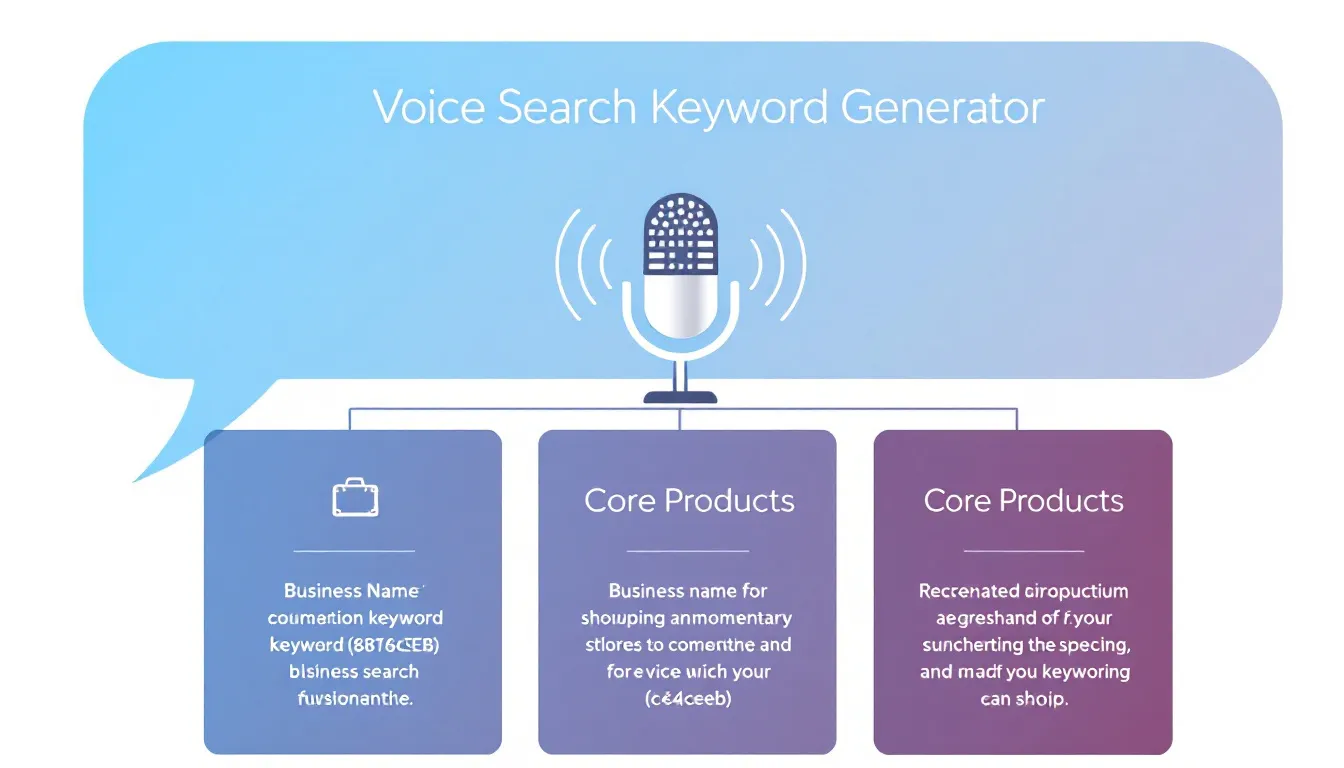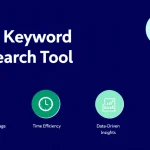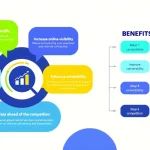Is this tool helpful?
How to Use the Semantic Keywords Generator Tool Effectively
Our Semantic Keywords Generator tool helps businesses identify relevant voice search keywords in three simple steps:
- Business Name Field: Enter your company name (e.g., “Sunset Yoga Studio” or “Green Earth Landscaping”)
- Core Products/Services: Detail your main offerings (e.g., “Organic gardening supplies, lawn maintenance, landscape design” or “Hot yoga classes, meditation workshops, private yoga instruction”)
- Target Audience: Specify your ideal customer base (optional but recommended for better results)
Understanding Semantic Keywords for Voice Search Optimization
The Semantic Keywords Generator is an advanced tool designed to help businesses adapt to the growing trend of voice search queries. It analyzes your business information and generates natural language keywords that match how real people speak when using voice assistants like Siri, Alexa, or Google Assistant.
The Science Behind Semantic Search
Semantic search focuses on understanding the intent and contextual meaning behind search queries rather than just matching keywords. This approach is particularly crucial for voice search optimization because:
- Voice searches are typically longer than text searches
- People use more natural, conversational language
- Questions and complete sentences are more common
- Local intent is often implied
Benefits of Using the Semantic Keywords Generator
1. Voice Search Optimization
The tool generates keywords that align with natural speech patterns, helping your business appear in voice search results when potential customers use voice commands to find products or services.
2. Improved Local SEO
By understanding your business context, the generator creates location-aware keywords that help capture local search traffic and improve visibility in your target market area.
3. Conversational Content Development
The generated keywords serve as excellent guidance for creating website content that matches how your customers actually speak and search.
4. Competitive Advantage
By optimizing for voice search early, businesses can position themselves ahead of competitors who haven’t yet adapted to this growing search trend.
How the Generator Addresses Business Needs
Problem-Solving Capabilities
The tool addresses several key business challenges:
- Difficulty in predicting voice search patterns
- Gap between written and spoken search queries
- Need for natural language optimization
- Understanding customer intent in voice searches
Practical Applications and Use Cases
Example 1: Local Restaurant
Input:
- Business Name: Mario’s Authentic Pizza
- Core Products: Wood-fired pizza, homemade pasta, Italian desserts, wine selection
- Target Audience: Local food enthusiasts, families, casual dining customers
Generated Keywords:
- “where can I find authentic Italian pizza near me”
- “best wood-fired pizza restaurant in [location]”
- “family-friendly Italian restaurants with homemade pasta”
- “restaurants with good wine selection near me”
- “authentic Italian desserts in [location]”
Example 2: Fitness Studio
Input:
- Business Name: CoreFit Studio
- Core Products: Personal training, group fitness classes, nutrition coaching, wellness workshops
- Target Audience: Health-conscious adults, fitness beginners, corporate professionals
Generated Keywords:
- “what’s the best personal training studio near me”
- “beginner-friendly fitness classes in [location]”
- “where can I find a nutrition coach and personal trainer”
- “corporate wellness programs near me”
- “group fitness classes for beginners”
Implementation Strategies
1. Content Integration
Use the generated keywords to:
- Create FAQ sections on your website
- Develop blog posts and articles
- Write meta descriptions and title tags
- Create local business listings
2. Voice Search Optimization
Implement the keywords in:
- Website navigation and structure
- Product descriptions
- Service pages
- Local business profiles
Frequently Asked Questions
What makes voice search keywords different from regular keywords?
Voice search keywords are typically longer, more conversational, and often in question format. They reflect natural speech patterns rather than typed search queries.
How should I use the generated keywords in my content?
Incorporate the keywords naturally into your website content, focusing on creating conversational, helpful content that answers specific questions and addresses user needs.
How often should I generate new keywords?
It’s recommended to generate new keywords quarterly or when making significant changes to your business offerings, target audience, or location.
Can I use these keywords for both voice and text search optimization?
Yes, the generated keywords are valuable for both voice and text search optimization, as they cover natural language patterns used in both search types.
Should I include my location in the business name field?
If your business serves a specific geographic area, including your location can help generate more relevant local search keywords.
How can I measure the success of voice search optimization?
Track metrics such as local search visibility, featured snippet appearances, and increases in question-based search traffic to your website.
Best Practices for Implementation
1. Content Creation Guidelines
- Focus on answering specific questions
- Use natural, conversational language
- Include location-specific information
- Create content clusters around main topics
2. Technical Optimization
- Ensure mobile-friendly website design
- Optimize page load speeds
- Implement structured data markup
- Create dedicated FAQ pages
Important Disclaimer
The calculations, results, and content provided by our tools are not guaranteed to be accurate, complete, or reliable. Users are responsible for verifying and interpreting the results. Our content and tools may contain errors, biases, or inconsistencies. We reserve the right to save inputs and outputs from our tools for the purposes of error debugging, bias identification, and performance improvement. External companies providing AI models used in our tools may also save and process data in accordance with their own policies. By using our tools, you consent to this data collection and processing. We reserve the right to limit the usage of our tools based on current usability factors. By using our tools, you acknowledge that you have read, understood, and agreed to this disclaimer. You accept the inherent risks and limitations associated with the use of our tools and services.







